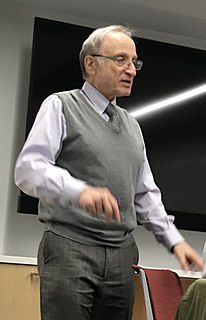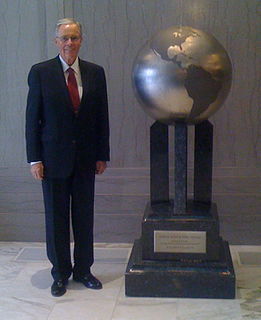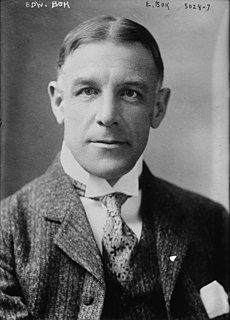A Quote by Stephen King
These self-appointed deacons in the Church of Latter-Day American Literature seem to regard generosity (of words) with suspicion, texture with dislike, and any broad literary stroke with outright hate. The result is a strange and arid literary climate where a meaningless little fingernail paring like Nicholson Baker's Vox becomes an object of fascinated debate and dissection, and a truly ambitious American novel like Matthew's Heart of the Country is all but ignored.
Quote Topics
Ambitious
American
American Literature
Any
Appointed
Arid
Baker
Becomes
Broad
Church
Climate
Country
Day
Deacons
Debate
Dislike
Dissection
Fascinated
Generosity
Hate
Heart
Ignored
Latter
Like
Literary
Literature
Little
Matthew
Meaningless
Nicholson
Novel
Object
Outright
Regard
Result
Seem
Self
Strange
Stroke
Suspicion
Texture
Truly
Words
Related Quotes
Does people not asking me about Asian American literature mean they don't see it as its own literary tradition? I certainly believe in it as its own literary tradition, because your race plays a great factor in how you are seen by the world, and how you see the world; the fact that I'm an Asian American isn't incidental to who I am as a writer. Where it becomes difficult is defining what, if anything identifiable at all, makes an Asian American book an Asian American book, other than the fact of its creator being Asian. And I'd argue that there is nothing identifiable beyond that.
Evidently, there are many great American writers. But sometimes it can feel as though American fiction is dominated by relatively linear narrative form, with a heavy emphasis on psychological realism. If you limit yourself to a certain kind of American literary fiction, it's easy to forget about the different kinds of books that are being written. You can forget to be ambitious, both as a reader and a writer.
How we act and dress reflects how we regard where we are and who we are. Let me demonstrate. One of the natural occurrences in missionary work is the change in new converts, especially little boys, young men, and fathers. When they go to Church meetings, they want to look like the missionaries. Now, that tells us a lot about the importance of looking like a member of The Church of Jesus Christ of Latter-day Saints.
The Gospels were not thought of as works of literature. People were not concerned with the literary reputation of Matthew or Mark, but with the substance of their records of our Lord's life. They did not have to respect their actual words, as they would if they were transcribing the works of Thucydides or Plato.
If the Latterday Saints had not abandoned plural marriage, they would have remained a fringe religion and would never have moved into mainstream American culture. Today, the Church of Jesus Christ of Latter-day Saints thrives. It is one of the fastest growing religions in the country and is the most successful American-born religion.


































